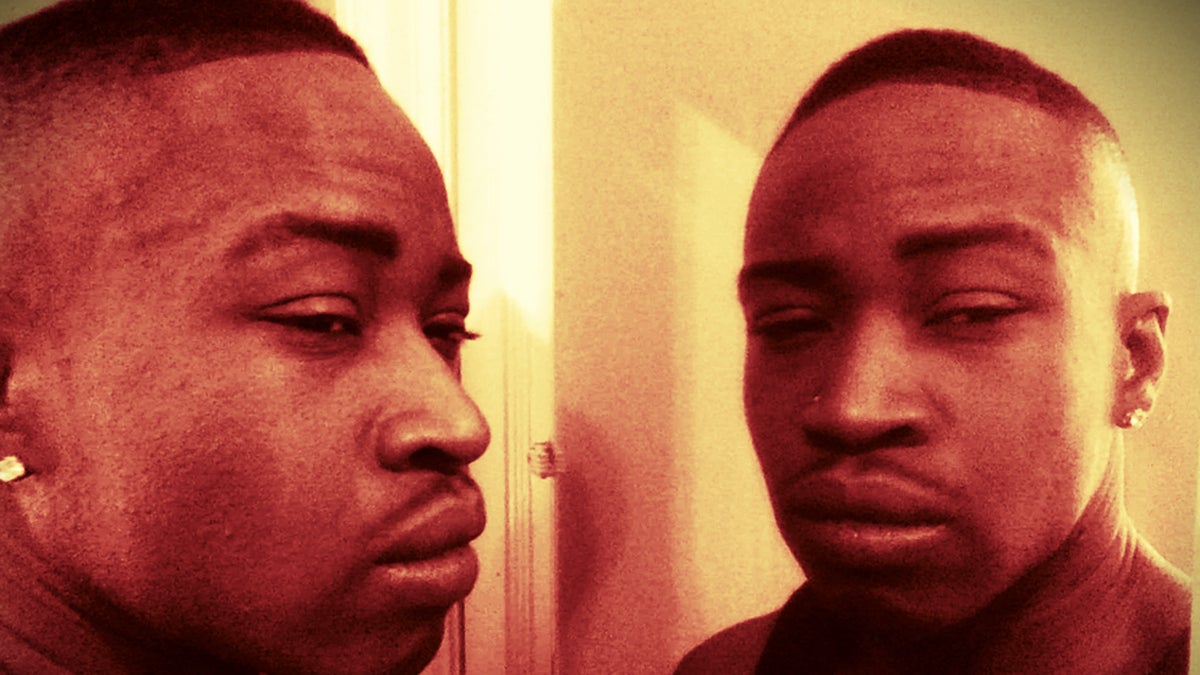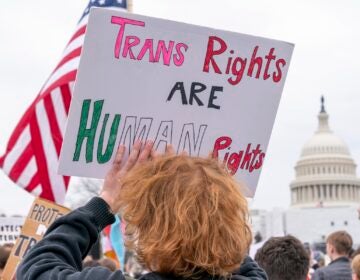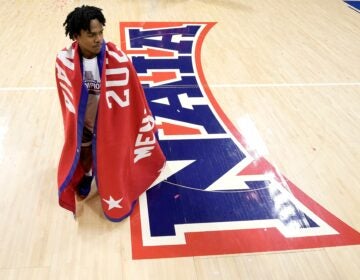Passing as a transsexual black man, and the revolutionary courage to continue
I was finally "passing" as a black man. I also came to realize that the duties of the police to "protect and serve" did not necessarily apply to someone like me.

Image of Christian A'Xavier Lovehall, a.k.a., Wordz The Poet Emcee, from ReverbNation
As a kid, I didn’t have many toys, so I was always a fan of food and snacks that came with “prizes.” Cracker Jack. Cereal boxes. I remember longing for my occasional after-school “Happy Meal,” and my biggest joy was the toy that came inside.
At the age of five, in the McDonald’s drive-through, I would sit quietly in the back seat of my mother’s “hoopty,” excited and smiling. After ordering my Happy Meal, she always got a question through the intercom that intrigued my young mind: “Is it for a boy or a girl?” And her response was always a simple “girl” — dooming me to Barbies, Cinderellas, ballerina figurines and boring My Little Ponies, destroying my excitement.
One time at Mickey D’s, there was a young black boy, about my age, standing in front of me in line and looking up at his mom with big inquiring eyes. She said something my mother never said when she got the Happy Meal question. She said “boy.” Surprised and in awe, I saw that boy receive a tiny red, black and yellow Hot Wheels race car. I stared at him, bursting with excitement.
That day I realized that McDonald’s did actually give kids cool toys and that my mom was simply using the wrong Happy Meal password.
When we finally reached the register to order, the cashier asked my mother what kind of Happy Meal she wanted. I tugged at her sleeve and said proudly, “I wanna boy toy!” My mom blushed with embarrassment and firmly grabbed my hand and whispered to me, “Those are for boys only!” After apologizing for me, she gave her normal response: “girl.”
In that moment, I felt something inside me break, and I began to cry hysterically. My mom dragged me out of the restaurant.
The same sadness would strike me in the same way for several more visits to McDonald’s, until my mom finally grew tired of beating me for my “wild tantrums and fits.” Finally, she said that I could get the boy toy, but only under one condition. I had to squat and hide on the floor in the back of the car, so the cashier would not see that I was not a boy.
Thrilled that I would finally get to play with the cool toys, I immediately dropped to the floor of the car and eagerly listened to my mother change her Happy Meal password. I received my race car that night and was happy.
This “duck down strategy” continued throughout my childhood until about the age of nine. At first it was fun. I even made a game out of it. But during those years of repeated and seemingly simple trips for burgers, chicken nuggets and fries, I internalized a deep sense of self-hatred, shame and low self-esteem.
I was attracted to, enjoyed, and loved all things “boy.” I was soon labeled a “tomboy,” and the ridicule I got from family, friends and strangers made me believe that the person I was becoming was wrong and laughable. I struggled with the choice already being made for me and knowing that any deviation from that was an abnormality. Learning to love myself was very difficult.
The trouble with ‘passing’
Being seen as the gender you wish to present as is a big thing for some transgender people. Some call it “passing” — when you physically blend into society as a “passable” man or woman. In my case, it’s when the she’s were replaced with he’s.
Shortly after the killing of Trayvon Martin, I was approached by two white male police officers after crossing a street late one night in South Philly. Sporting a blue hoodie, I had just come from buying some Chinese-American cuisine: four chicken wings with fries, homemade iced tea, and a loosie. I was on my way home. They stopped me for jay-walking.
This was strange to me, because Philly is a city of jaywalkers. It’s oftentimes the way you can tell a Philadelphian (who will cross the street whenever and wherever there are no cars in sight) from a visitor (who will wait at the corner for the light to turn green). All of my years in Philly, I had never heard of anyone being stopped for such a thing.
Moments later, both officers were pushing my small frame down to the concrete, handcuffing me, and throwing me into the back of their police wagon — which smelled of urine, feces, blood and vomit — where they made me wait, and wait, and wait. Eventually they gave me two tickets and one citation, totaling $360 in fines: one for jay-walking, one for not having an updated address on my ID, and one for disorderly conduct. When I asked the officers why they felt the need to slam me down on the concrete, my questions were allegedly so loud that I disturbed the neighbors on the block. They uncuffed me and handed me the paperwork and my platter.
I felt hurt, angry, lost and unsafe. I had lost my appetite. My food was cold. I realized that night that I was finally “passing” as a black man. I also came to realize that the duties of the police to “protect and serve” did not necessarily apply to someone like me — young, black and male.
Fighting for a voice
Growing up, I was constantly silenced. I was raised to believe my thoughts, feelings and emotions were unimportant. For a few years I was so shy and withdrawn that, when I did speak, it was only a whisper. I lived an invisible life, lost in this world and in my mind. But that all changed when I was introduced to hip hop.
One thing that immediately drew me to hip hop was the power of the mic. When an emcee grabbed the mic, he got people’s attention. When he spit into the mic, the people listened. I was instantly drawn to the art and culture. Hip hop wasn’t simply a type of music or artistic expression. Hip hop gave us kids from the hood power and sense of community and purpose. It allowed us to stand tall and grow, like roses in concrete.
For the first time in my life, I felt that what I had to say was important and did matter. No one cared about me off-stage, but on stage, the light within me, which people overlooked daily, could shine, and shine brightly. Hip hop mended my heart and literally saved my life. It gave me the voice I had always longed to have.
I started rhyming at the age of 15. At the time, I identified as a butch lesbian. My sexual orientation and gender expression was never an issue for me when performing. I think it’s because with artists like Queen Latifah, Da Brat, and a few other legends in “da game,” lesbians have always had a presence in hip hop, whether they were totally out or not. Being butch actually worked for me in many instances, because instead of being sexualized like my femme counterparts, I was simply respected for being a dope emcee.
Since then, I have also medically transitioned to male. Many may believe my journey in hip hop would be easier as a transsexual male, the assumption being that, because I am now perceived as male, I’m able fall in with the other male emcees. But that isn’t the case entirely.
Many emcees approach hip hop as a competitive sport. Prior to my medical transition, I felt no competition, as I was oftentimes the only female emcee in da buildin’. I would compete with my male counterparts in my head, but was never truly seen as a threat. But today I am just that. So the respect I had previously experienced has been replaced with envy, hatred and anger by other male emcees and their squads. With the threat of man-on-man violence, safety is now an issue and concern.
The struggle also continues, with my size and sense of style. Because of my short stature, lean build, and vintage, tailored fashion statements, many cisgender male rappers label me as gay. To this day, from hearing whispers to receiving weak handshakes to being shoved repeatedly, I’m forced to deal with the homophobia that taints hip hop culture. In these moments, no matter how well I perform, applause and appreciation are extremely limited if any occurs at all. Many like to use my sets as opportunities to use the restrooms, talk loudly with friends, or go outside to smoke a cigarette. Although lesbians have had a presence in hip hop, appearing to be a gay male, whether you are one or not, is apparently not the move for “success.”
In addition, hip hop artists have been very vocal when asked if the art form can handle transgender talent — responding with a resounding no. And many hip hop fans would agree. So during the few rare times I actually get props after a performance, I know that the respect I get is most likely conditional.
My journey in hip hop is a courageous one. It’s a revolutionary move, and I often wonder if the world is ready. Until then, I’ll continue to show up, giving my all, because I do have a place in hip hop as an artist — who just happens to be a transsexual male. On stage, I go by WORDZ The Poet Emcee, and I do got barz.
—
Philadelphia native Christian A’Xavier Lovehall, a.k.a. WORDZ The Poet Emcee, lives in New Orleans.
This story was performed in front of a live audience as part of “BEyond Expectations: Engaging Men of Color,” a partnership of First Person Arts and the City of Philadelphia’s Department of Behavioral Health and Intellectual Disability Services.
Correction: An earlier headline referred to Lovehall as transgender. He identifies as transsexual.
WHYY is your source for fact-based, in-depth journalism and information. As a nonprofit organization, we rely on financial support from readers like you. Please give today.



